- Austausch & Vernetzung
- Wissen & Lernen
- Advocacy
- Unsere Themen
Die Digitalisierung im Gesundheitsbereich schreitet voran. Ein eben erschienener Bericht von Medicus Mundi Schweiz zeigt, wo die internationale Gesundheitszusammenarbeit der Schweiz steht. Aufbauend auf diesen Bericht entwickelt MMS nun Grundlagen für eine ethische Umsetzung digitaler Projekte.
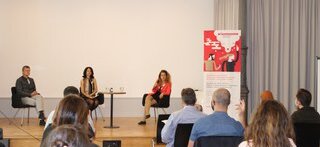
Dieser Tage hat das Netzwerk Medicus Mundi Schweiz (MMS) seinen Bericht darüber veröffentlicht, wie seine Mitgliedsorganisationen digitale Technologien in ihren Projekten einsetzen. Wir fragten nach dem Einsatzkontext, den eingesetzten digitalen Technologien und der strategischen Einbettung. Das so entstandene Mapping zeigt, in welch unterschiedlichem Grad sich digitale Gesundheit in der internationalen Zusammenarbeit entwickelt und wo Stärken und Schwächen Schweizer Akteur*innen liegen. Ich denke, dass dieses Mapping sich über den Sektor der Gesundheitszusammenarbeit hinaus auf die internationale Zusammenarbeit Schweizer Organisationen übertragen lässt.
Die Digitalisierung in der internationalen Gesundheitszusammenarbeit birgt grosse Chancen, aber auch Risiken: Insbesondere können dank digitaler Technologien Zugangslücken überwunden werden und letztlich Basisgesundheitssysteme stärken. Doch auch die Risiken liegen auf der Hand: Datenschutz, Datenkolonialismus oder die Schwächung von Gesundheitssystemen sind nur einige davon.
Digitaler Enthusiasmus ist gut, es kann aber auch sehr vieles falsch gemacht werden. Als Organisation nun den Kopf in den Sand zu stecken, kann keine Lösung sein, denn die Digitalisierung ist eine Realität. Was es aber auf jeden Fall braucht, um Digitalisierungsprojekte umzusetzen, ist ein Plan, eine Strategie.
Dazu entwickelt MMS gerade ethische Grundlagen, auf welche sich die internationale Zusammenarbeit in der Zukunft abstützen sollte. Dieses transnationale Framework zur digitalen Gesundheit in der internationalen Zusammenarbeit wird strategische Bausteine liefern, um mit Communities und nationalen Regierungen zu arbeiten, um elektronischen Abfall zu verhindern und um auf lokal vorhandene Kapazitäten, anstatt alleine auf bestehende globale Zentren der digitalen Wirtschaft zu bauen. Letzteres nennen wir im Framework einen de-zentrierten (de-centered) Ansatz.
Martin Leschhorn Strebel
Netzwerk Medicus Mundi Schweiz
E-Mail

Med in Switzerland #22 September 2020
Medicus Mundi Schweiz analysierte, wie und inwieweit seine Mitgliedsorganisationen digitale Technologien in der internationalen Gesundheitszusammenarbeit einsetzen. Die Umfrage ergab, dass gute Ansätze und Wissen in einigen Organisationen vorhanden sind. Um jedoch diese Technologien so einzusetzen, dass die Gesundheitsversorgung aller verbessert werden kann, sind Strategien notwendig, welche auf lokalen Kapazitäten und einer ethisch verantwortungsvollen Umsetzung basieren, schreibt die MMS-Projektleiterin Carine Weiss. (Photo by Lukas Blazek on Unsplash)

Report written by Carine Weiss, Medicus Mundi Switzerland
This report reveals the results of the mapping exercise undertaken by MMS of its members’ use of digital technologies in health. The aim of the survey was to assess the knowledge and use of digital health technologies and to facilitate and foster collaboration between MMS member organisations. In short, it was designed to obtain a better understanding of who is doing what, how and where. (Photo by William Iven on Unsplash)

Medienmitteilung der Swiss Malaria Group
Wie vieles dieses Jahr, fällt auch das eidgenössische Jubiläums-Schwingfest am 30. August der Corona-Pandemie zum Opfer. Marcel Bieri, Schwinger und stärkster Lehrer der Schweiz, steht trotz allem im Sägemehl und kämpft in der neuen Kampagne der Swiss Malaria Group gegen eine der ältesten und tödlichsten Krankheiten der Menschheit: die Malaria.
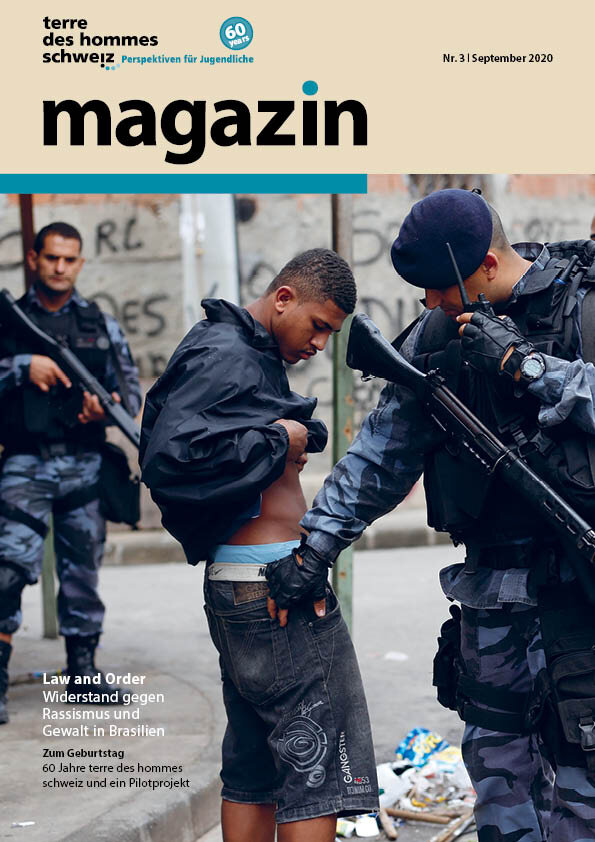
60 Jahre Bewegung Terre des Hommes
Spätestens nachdem die WHO am 11. März dieses Jahres den Ausbruch des neuen Coronavirus offiziell zu einer Pandemie erklärt hatte, war klar: Die geplanten Aktivitäten zum 60-jährigen Jubiläum der internationalen Bewegung Terre des Hommes fallen ins Wasser.
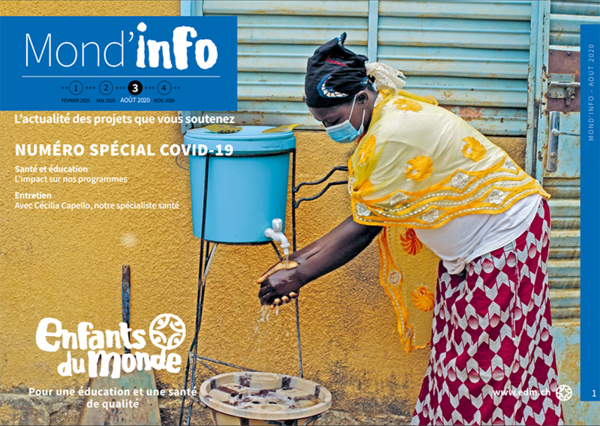
Finden Sie in der neuesten Ausgabe der vierteljährlich erscheinenden Zeitschrift von Enfants du Monde heraus, wie sich unsere Teams im Hauptquartier und vor Ort auf die COVID-19 Gesundheitskrise eingestellt haben und unsere Gesundheits- und Bildungsprogramme in der ganzen Welt fortsetzen. Im Rahmen unserer Gesundheitsprogramme konzentrierten wir uns insbesondere auf den Schutz des Gesundheitspersonals und der schwangeren Frauen in Burkina Faso, Bangladesch, Haiti und El Salvador, womit wir auch die Massnahmen der Gesundheitsministerien unterstützen.
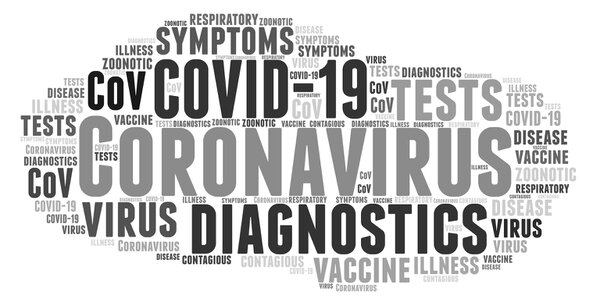
NEU im MMS Dossier
Die durch das Corona-Virus hervorgerufene Infektion und Erkrankung hat sich über die ganze Welt verbreitet, weshalb die Weltgesundheitsorganisation eine Pandemie ausgerufen hat. Während die medizinische Versorgung bereits in den europäischen Ländern an die Kapazitätsgrenzen stösst, wird sie im globalen Süden bei ähnlich steigenden Zahlen unmöglich sein. In diesem Dossier bieten wir Hintergrundinformationen zur Situation in ressourcenschwachen Ländern und politische Analysen zu den Folgen für die globale Gesundheit. Und wir informieren wie unsere Mitgliedorganisationen und deren Partnerorganisationen von der Situation betroffen sind und damit umgehen. (Foto: Coronavirus/EpicTop10.com/flickr, CC BY 2.0)
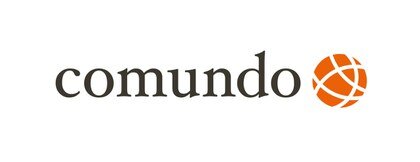
Cusco (San Jerónimo), Peru. 2-3 Jahre
Sie bringen Ihr Know-how im Bereich der sozialen Arbeit ein, um die Rechte von alten Menschen in der Stadt Cusco zu fördern. Lugar de trabajo: Cusco (San Jerónimo), Perú. Organización coparte: Kallarisunchis (www.kallarisunchis.org.pe). Duración: 2 –3 añosInicio de contrato: previo acuerdo.

Einsatzort: Santa Cruz, Bolivien. 2-3 Jahre
Bringen Sie Ihr reichhaltiges Know-how und Ihre Erfahrung ein, um Kinder und Jugendliche vor sexueller Gewalt zu schützen. Lugar de trabajo: Santa Cruz, Bolivia. Organización coparte: Centro Especializado de Prevención y Atención Terapéutica para niñas, niños y adolescentes víctimas de violencia sexual, trata y tráfico (CEPAT) Duración: 2 –3 añosInicio de contrato: previo acuerdo.

Graduate Institute Geneva Vulnerability is part of the human experience. People are not inherently vulnerable - vulnerability based on age, race, gender, class, sexuality, geography, drug use, undocumented migrant status, health status often happens as a result of structural drivers. People in vulnerable situations deserve to have their rights respected, protected, and fulfilled. And all of the solutions that we are coming up with—law reform or policy updates, procurement or services, or public health, communication, philanthropy—have to be centered around restoration of dignity. The new UN Special Rapporteur on the right to health, Dr Tlaleng Mofokeng, will give her first talk at the Graduate Institute on 17 September 2020 and explore the right to health as a tool to restore dignity. Register via the link below. (Photo: Graduate Institute)
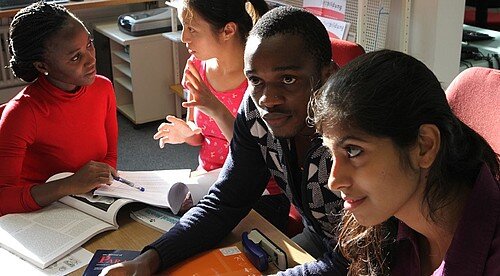
Swiss TPH Strong managers and leaders are needed to ensure sustainable and equitable health systems that can respond to current and future health needs. The MBA in International Health Management programme seeks to create a new generation of managers and leaders, building on their various skills sets and personalities in order to equip them for independent meso- and macro-level leadership positions by maintaining a global perspective and interdisciplinary approach to health. The MBA in International Health Management is taught in a blended-learning format (on-campus 1/4, distance based 3/4). More information about the course structure you find here (https://issuu.com/communications.swisstph/docs/tph_graifk2-mba-ihm_1_?fr=sY2U3NTI3MDM3)
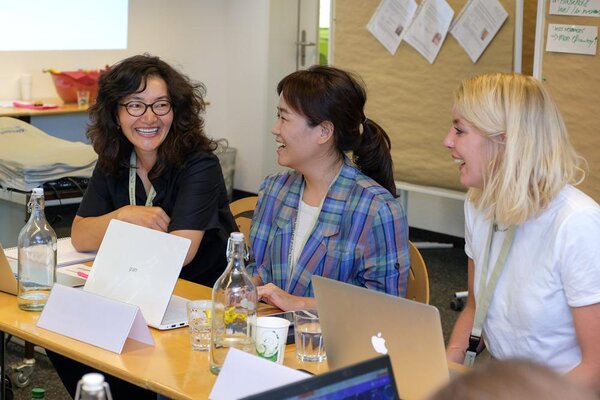
Swiss TPH Many problems related to healthcare quality and safety are the consequences of poorly managed medicines and medical supplies. This course introduces all elements of the supply chain cycle for medicines and other health commodities, including selection of medicines, procurement, distribution and use. Central to this is the management of the whole supply chain system, which comprises quality assurance, human resources, financing, relevant policies and regulations, and monitoring and evaluation. The course emphasises the importance of integrating supply chain activities into overall health system management. Duration: Preparation phase: starts 28 September 2020. On-campus: 26 – 30 October 2020 (subject to modification). Final Assignment: 18 December 2020 (6 ECTS).
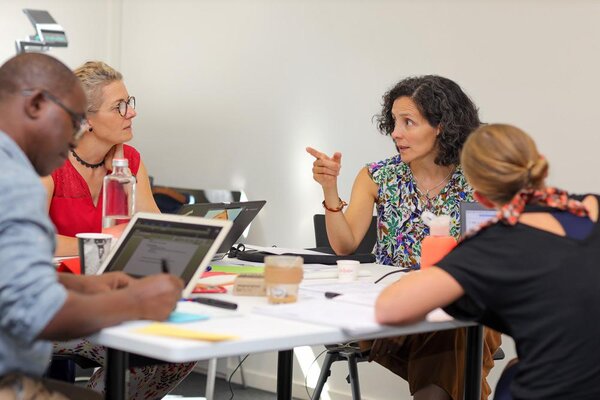
Swiss TPH In this course, students are equipped with project planning and project management tools and resources as they develop a small project that could be implemented at their workplace or other organisations. The project is an exercise in transferring students’ knowledge and experience to a practical setting. Students are encouraged to implement the project, at least parts of it, in a realworld situation. Preparation phase: starts 28 September 2020 Virtual seminar tuition phase 2 – 5 November 2020 Final Assignment: 18 December 2020 (10 ECTS).
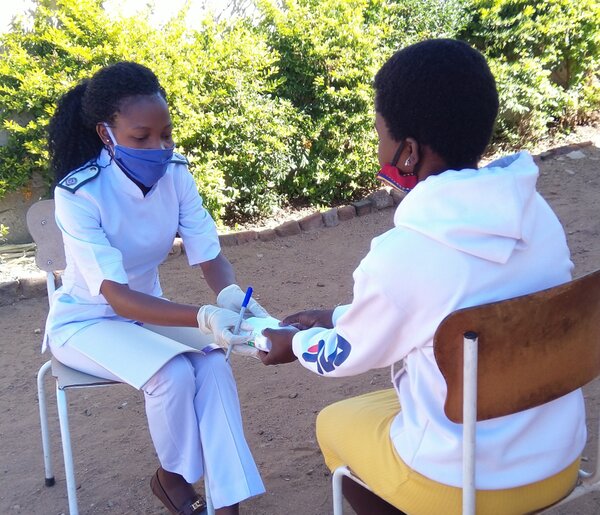
Medicus Mundi Suisse En novembre 2019, la maladie de la Covid-19 faisait son apparition en Chine. Avec un taux de propagation extrêmement rapide, elle a infecté en quelques mois plus de 20 millions de personnes dans 215 pays en faisant plus de 731'000 morts (Source: OMS, 11 août 2020). Photo: Tests porte à porte, © terre des hommes schweiz.
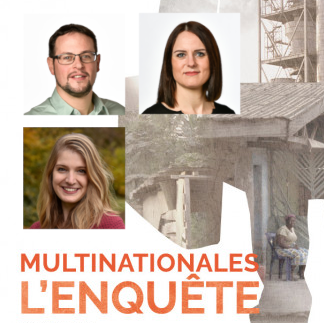
Comundo 1er et 9 octobre 2020 – Vernissage d'exposition : conférence témoignage de cas de violations entre communautés locales et Multinationales et projection du film événement « Multinationales : l'enquête » annulé partout en Suisse au printemps. En vue de la votation du 29 nov., deux soirées exceptionnelles à ne pas manquer !

Comundo 1.10 - 18.12.2020 – des multinationales au consommateur : dans l'actualité du débat sur les multinationales, une exposition d'affiches et d'information sur la chaîne de production des mines africaines jusqu'à nous, en passant par les usines de production asiatiques. Ouvert à tou·te·s / Ateliers de groupes organisés sur demande ! Avertir avant venue : 058 854 12 40 / fribourg@comundo.org Prix : gratuit
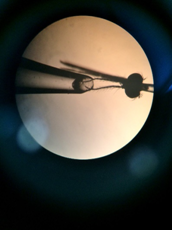
Swiss Malaria Group (SMG) The SMG is inviting academic institutions, public and corporate actors as well as multilateral organizations and civil societies to pool experiences gained from decades of work in the national and international health sector to identify concrete interventions that will contribute to reaching Universal Health Coverage (UHC). Covid-19 has shown the crucial role of strong health systems in fighting diseases and in providing uninterrupted routine services even during a pandemic. These findings apply universally to countries in all parts of the world, including Switzerland. Joint knowledge of all sectors and partners is essential for redefining how we prepare for future health crises by building more resilient health systems globally. Since 2007 the Swiss Malaria Group (SMG) unites academic, public and private actors engaged in the fight against malaria. Combining long-term experience and engagement in global health, the SMG and its member organizations can provide support and guidance towards strategies for more resilient health systems that will allow us to better manage current and future health problems. More information about the event will follow in due course.
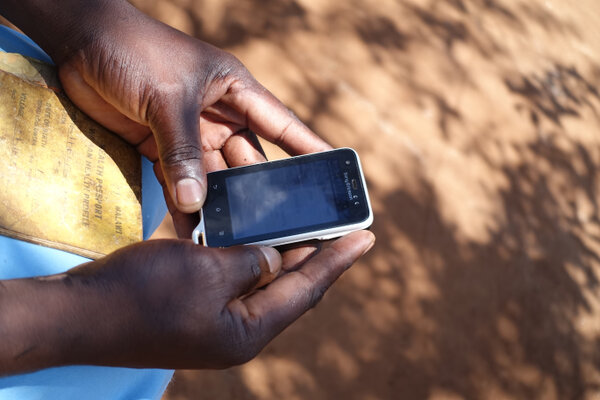
Medicus Mundi Schweiz Die Digitalisierung betrifft uns alle. Telemedizin, webbasierte Diagnosetools, digitale Datenerfassung und künstliche Intelligenz (KI), um nur einige zu nennen, haben vielfältige Auswirkungen auf die Gesundheit sowie auf die Gesundheitssysteme und werden die Landschaft der globalen Gesundheit nachhaltig verändern. Die Diskussion von Themen rund um "Big data", Datenbesitz, Daten-Hosting, Datenschutz und anderen ethischen Fragen sind von entscheidender Bedeutung, um sicherzustellen, dass die digitalen Technologien der Gesundheit für alle den grösstmöglichen Nutzen bringen. (Foto: © Christoph Pimmer)
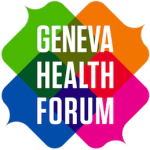
Geneva Health Forum Health systems are facing serious dynamic challenges. Resources are increasingly limited in a rapidly changing world, where the nature of health needs are equally changeable. However, technological progress in the digital age and the emergence of new health actors expand our array of potential solutions to these unprecedented challenges. (Photo: GHF)

MMS You are most welcome to join our Civil Society Afterwork. Co-organizers: Medicus Mundi Suisse, Fedevaco, FGC, Médecins du Monde, IAMANEH and AMCA in the frame of Geneva Health Forum 2020, Improving Access to Health: learning from the field. Contact: Andréa Rajman, Medicus Mundi Suisse, arajman@medicusmundi.ch (Photo: Cité de la Solidarité Internationale, Annemasse, France)
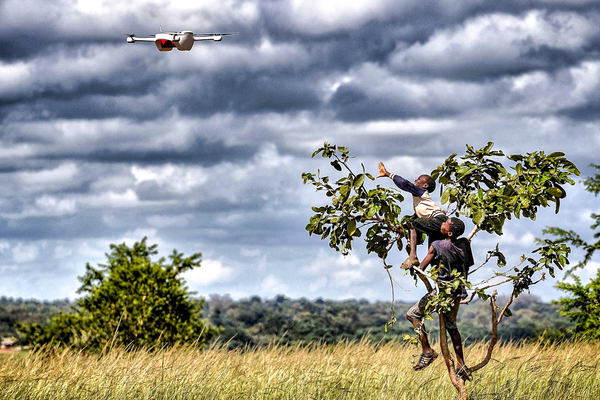
Swiss TPH Strong and resilient supply chains ensure the provision of quality health products to patients, making them a central component of health systems. The availability of health commodities is vital for the achievement of Universal Health Coverage and the Sustainable Development Goals.
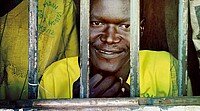
Swiss TPH Swiss TPH offers this one-week course in collaboration with the International Committee of the Red Cross (ICRC) to give health professionals the information, methods and tools needed to analyse and address health and human rights issues affecting people in detention. The course covers topics such as detainee health, health systems, control of communicable and non-communicable diseases and ethical issues that arise when providing healthcare services to populations in detention. It also provides an overview of the main legal instruments, professional codes and declarations designed to protect the rights of prisoners, detainees and patients. This course is open to participants working in the field of health in detention, nationally or internationally, and uses a multi-disciplinary approach to bring together academics and clinical, public health and legal experts.

Swiss TPH The Travellers’ Health course prepares health professionals and travel industry staff to give relevant health information to travellers and to assess travel-related problems occurring during and after travel, with a special focus on tropical diseases. At the end of the course, participants will be able to provide up-to-date information in travel medicine. This includes preventive pre-travel advice, including immunizations and other aspects during travel, appropriate risk assessment and behaviour during travel and management of travel-related diseases based on individual and epidemiological features. This course is supported by WHO, TropNet and the Swiss Society of Tropical and Travel Medicine.

Swiss Implementation Science Network (IMPACT) We warmly welcome you in Basel to be part of an exciting next phase in Swiss health care research! The 1st IMPACT conference consists of two parts: In the late afternoon of June 4, we will celebrate the official start of the Swiss Implementation Science Network with a keynote lecture by Professor Dr. Michel Wensing, chief editor of the journal ‘Implementation Science’ (University of Heidelberg, Germany). On June 5, we organize an Implementation Science Masterclass with contributions from international implementation science experts, Dr. Cynthia Vinson (National Cancer Institute, USA), Professor Dr. Leah Zullig (Duke University, USA), Professor Dr. Byron Powell (Washington University, St. Louis, USA) and Professor Dr. Michel Wensing. The Master-class -provides a mix of theoretical lectures, practical examples of Swiss implementation science projects and roundtable discussions.
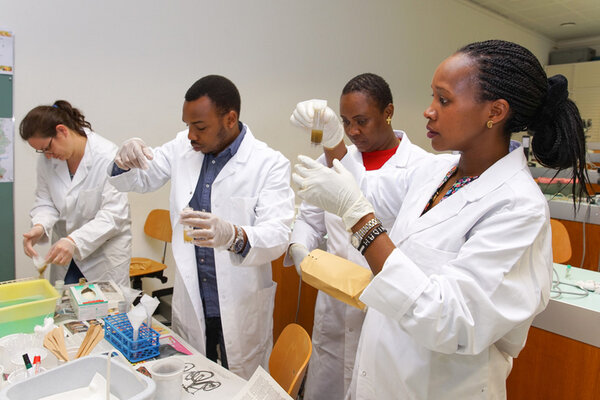
Swiss TPH The 14-week Health Care and Management (HCM) diploma course provides international participants with the core competencies to understand and react to health challenges (e.g. health care, child health, etc. ) at a world-leading institute in global and public health. Participants acquire a range of skills and knowledge needed to work as a member of a health management team, particularly in low- and middle-income societies. With a focus on practical application and interactive training, multinational participants benefit from engaging with experts from various fields and with a diverse student body to advance their position in the health sector. HCM also serves as the core course for the tropEd network, the European Network for Education in International Health, and is mandatory for those who wish to pursue a Master in International Health (MIH).